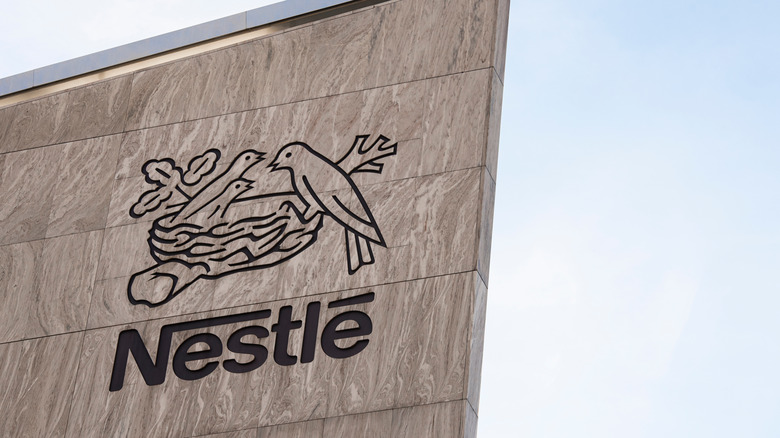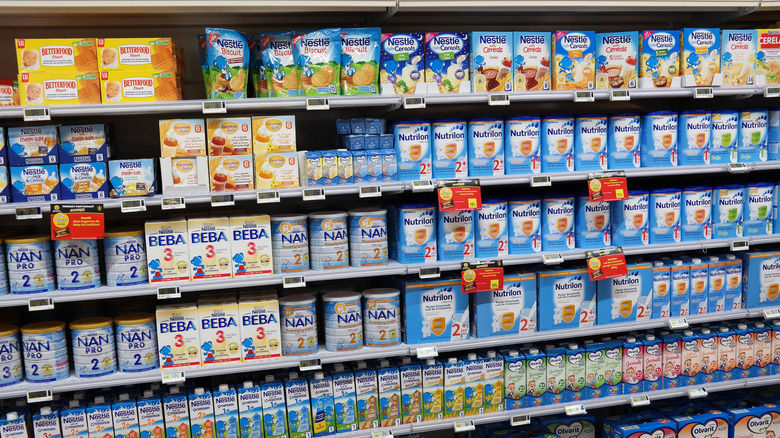Nestle Just Explained Why It Isn't Totally Pulling Out Of Russia
If you've been closely following the developing conflict in Ukraine and the evolving repercussions from Russia's invasion, you likely saw the Ukrainian prime minister call out Nestlé recently. At the time, the company had not ended its production or trade in Russia. Instead, Nestlé had explained that it was only making, importing, and exporting products that were essential items. The company also mentioned that they provided work to local Russians.
Nearly two weeks after Nestlé announced its decision to end many operations in Russia with the exception of essential items, the company is responding to those who have asked for answers. On March 23rd, the world's largest food company took to its website and Twitter to share that it would continue making and distributing essential items, including baby food, medical, and hospital nutrition.
Of course, many critics of the company's decision attribute the move to Nestlé's bottom line and corporate greed. But the message the food company shares via the internet named a few promises to minimize such criticism.
This is what Nestlé is doing to make things right
Part of Nestlé's full statement stated, "our activities in Russia will focus on providing essential food, such as infant food and medical/hospital nutrition — not on making a profit." The company also noted that doing so would ensure "the basic right to food." In addition, Nestlé reiterated the steps it had already taken, like ending advertising and investment and working within the bounds of international sanctions against Russia.
Nestlé said, "while we do not expect to make a profit in the country or pay any related taxes for the foreseeable future in Russia, any profit will be donated to humanitarian relief organizations." Nestlé also pointed out that it had already donated "hundreds of tons of food supplies and significant financial assistance" to those fleeing and fighting in Ukraine — including 5,800 Ukrainian Nestlé employees.
Many support the company's steps, sharing Nestlé's tweet and posting comments such as "acceptable" and "this is a good sign." But others remain angry toward a conglomerate they feel has missed the point.

